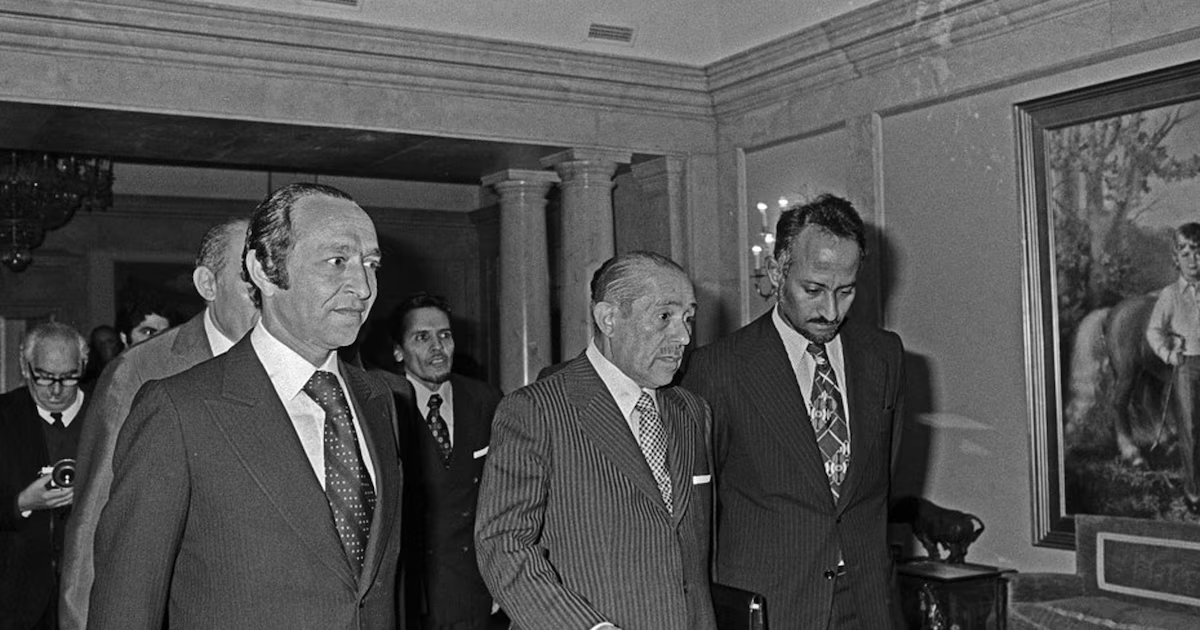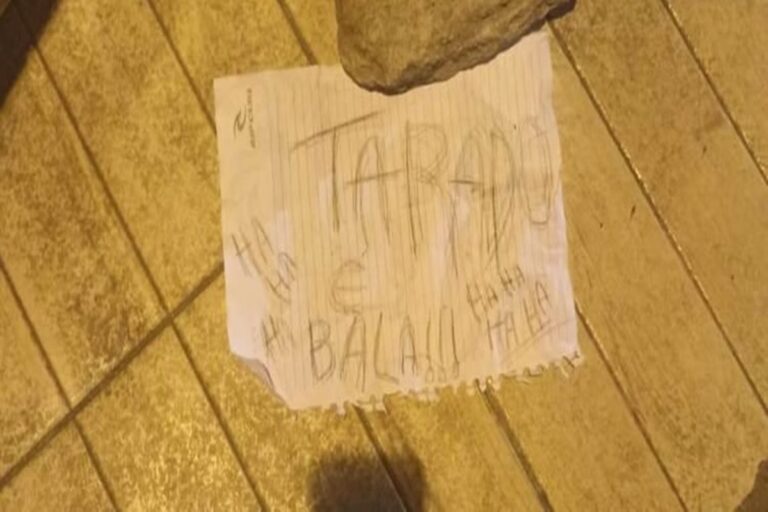
On November 14, 1975, five days after Morocco’s King Hassan II completed the Green March, the so-called Tripartite Agreement was signed in Madrid, under which Spain ceded control of Western Sahara to Morocco and Mauritania and promised to relinquish what was then its 53rd province by February 28, 1976.
With the signing of the Declaration of Principles between Spain, Morocco and Mauritania on Western Sahara, the Spanish government abandoned its commitment to the United Nations to proceed with a self-determination referendum in the region. The referendum was supposed to take place in early 1975, but was paralyzed by an appeal to the International Court of Justice (ICJ) promoted by Morocco.
In the document, signed by then-Government President Carlos Arias Navarro, Spain ratified “a resolution to liberate the territory of Western Sahara from colonialism and to end the administrative responsibility and authority it has over the region.”
Similarly, Spain promised to immediately establish a provisional government in the “parliament established in 1967 by the Spanish authorities to support the regime, in cooperation with the Yemers, in the region involving Morocco and Mauritania,” to which all “responsibilities and powers” would be transferred.
As a result, it envisaged the appointment of “two deputy governors, at the proposal of Morocco and Mauritania, to assist in the tasks of the territorial governor” and stipulated that “the end of the Spanish presence in the territory will take place definitively by February 28, 1976, i.e. only three and a half months later.”
The third and most controversial aspect of the joint declaration is that “the opinions of the Sahrawi people expressed through Yemaa will be respected.” Here, experts agree in the accusation that Sahrawis were never asked what they wanted, a fact that remains to this day, as a referendum on self-determination was later promised but has yet to take place.
Discomfort in some areas
The agreement with Morocco and Mauritania required Crown Prince Juan Carlos to become acting head of state before Franco’s restoration (he ultimately died on November 20), and was not to the liking of everyone in Spain’s government at the time, as the country was preparing for a transition after nearly 40 years under Franco’s rule.
This was stated by the CIA in an intelligence report dated November 15, 1975, the day after the meeting in Madrid. A senior official involved in the negotiations told the US embassy that it was a “bad deal” but “needed because it demonstrated the UN’s inability to prevent the situation from escalating into war.”
The document, seen by the European Press Agency, said the Spanish government was concerned about Algeria’s reaction. This is because Algeria was (and still is) a major supplier of natural gas, and Algeria has always made it clear that it is in favor of self-determination in Western Sahara. However, the report emphasizes that “Madrid clearly preferred to risk its energy supplies rather than become involved in hostilities in its colonies.”
Washington, however, was clear on who benefited most from the deal, saying: “The deal is a victory for King Hassan II, who has long sought to annex at least part of the Spanish Sahara.” Moreover, the report had already predicted what would eventually happen, that Morocco and Mauritania would partition the former Spanish colony once the Spanish authorities withdrew.
Therefore, as co-administrators, and considering that the Ima president was already in exile in Morocco and had arrived in Morocco on November 5 to pay homage to the Alawite monarch, he predicted that the outcome of the talks would be “a decision to divide the territory and give the northern region rich in phosphate deposits to Morocco and the southern region with iron ore to Mauritania.”
secret annex
On the other hand, the fact that the declaration contained four annexes, the contents of which were not initially made public, mainly referred to economic issues related to Western Sahara, also aroused discomfort and doubts. Finally, some of its content transcended when it was published in the magazine “Interviú” in early 1978.
Among other things, Morocco and Mauritania granted “fishing rights in the Saharan area in favor of 800 Spanish vessels, under the same status quo, for a period of 20 years, except for fees payable from the sixth year onwards,” with Spanish fishing vessels exempted for the first five years.
“For the next 15 years, both countries will pay the most favorable tariff available to third countries with agreed reductions,” which was to be established by a mixed committee of three countries before the start of the sixth year, as stated at the beginning of the annex.
Another annexe, signed separately with Morocco and Mauritania, specifies two fishing agreements in territorial waters. In the case of Morocco, up to 600 boats are allowed to fish in the same area on the “current Atlantic coast” and a further 200 in the same area in the Mediterranean Sea, with the list provided annually. In the case of Mauritania, 200 Spanish fishing vessels were allowed to operate within its territorial waters, also by providing an advance list.
In the specific case of Morocco, it was also agreed to create a “joint venture” for mineralogical exploration and for Spain to participate with a 35% stake in the final company that may emerge from it. In addition, the fourth annex included the acquisition by the Alawite Kingdom of 65% of the mining company Fos Bukra’a, responsible for mining phosphate in the Sahara Desert, for a payment based on its value as of December 31, 1975.
Law on Decolonization of the Sahara Desert
After the signing of the tripartite agreement, the Congress of Representatives approved the Law on the Decolonization of the Sahara Desert, which was promulgated by the BOE on November 20, 1975, the day Franco died. As a single article, the document “authorizes the Government to carry out acts and take measures necessary to protect Spain’s interests and carry out the decolonization of the non-self-governing territories of the Sahara.”
In defending this, Presidential Minister Antonio Caro Martínez clarified that “the Sahara belongs to Spain, but the Sahara is not Spain.” Formal statehood was “in no way an assimilationist endeavor”, but rather “Franco had always expressed a desire to respect the freedom and sovereignty of the Sahrawi people”.
The minister added that this was “a generous attempt to place the Sahara on a level of strict legal equality with all Spanish citizens” and said he wanted to make clear that the law, which was passed by 345 votes in favor to four against, with four abstentions, “does not concern the sovereignty or territorial integrity” of Spain, as “the Sahara is not a subject of sovereignty and does not form an integral part of the national territory.”



